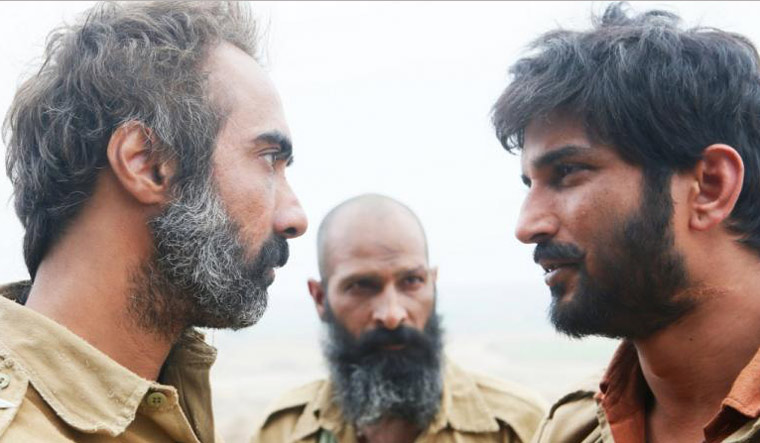Caste, even if we leave out all the social intricacies involved, can become an issue of privileges. It can, at times, help you get better medical facility, or deny it depending on where you stand in the caste-hierarchy. The power of caste atrocities, especially in areas where the caste system percolates down to the greatest depths, can break one down. In one scene in Abhishek Chaubey’s Sonchiriya, a woman (Bhumi Pednekar as Indumati Tomar) hides from a bunch of outlaws in the ravines of Chambal, where the film is set. She is with a young girl, who has been raped brutally. To seek help from the gang of dacoits—popular for being righteous, religious and saviour of the weak—she has to first verify her caste. After much deliberation among the gang members, help is offered.
The film, at the outset, isn’t the story of this woman and her battle to save the young girl. It is more about the behaviour of men she is running from. The men who want to dominate, irrespective of their relationship with her. And, it is also about being with dacoits, who are fighting their own demons of the past and trying to stay relevant while being chased by uniformed men (led by Ashutosh Rana as Virender Singh Gujjar).
The caste-divide, which frequently crosses the story line, gives the desired fillip to the plot. The film also tracks stories of people who do not give in to the existent atrocity, but fight it, selflessly. That’s what makes Sonchiriya unique.
Considering there have been umpteen films on the life of the bandits, mostly in the 60s and 70s, and more lately in Shekhar Kapur’s Bandit Queen (loosely based on the life of Phoolan Devi, whose reference peppers all over Sonchiriya, too) and Tigmanshu Dhulia’s Paan Singh Tomar, there’s little newness you expect from Sonchiriya. The expected violence is intact. But the film surprises you with the emotions that it deals with. A bandit who may have killed hundreds in his life is haunted by an incident where innocent kids have been put to death. He longs for atonement. Or, how a woman would go against her family, even her son, to protect a younger woman who she shares no relation with. Or, when one feisty woman from a low-caste tells another feisty woman from an upper-caste to fight as a woman and not as the flag bearer of a caste—women, as an entity, after all, are at the bottom of the caste ladder.
Sonchiriya, set in the Emergency era when there was a massive crackdown on the outlaws, is dark from the moment it begins—a close-up shot of a snake’s carcass, with flies hovering over it. It's a bad omen, believe the gang of dacoits led by Man Singh (Manoj Bajpayee in a special appearance). A believer that he is, Singh prays as he holds up the snake with the barrel of his gun, and continues on his way. The gang follows. There’s hardly anyone to question him then. But not for long.
The fine performances by Bajpayee, and the members of his gang—Sushant Singh Rajput as the considerate Lakhna, and the aggressive Ranvir Shorey as Vakil Singh, who are at the other end of the spectrum as cracks in the gang widen—deserve plaudits. Each one of them bring the desired nuances needed to portray the layered characters. Rana’s Gujjar, even if impactful, lacks any surprise element. Pednekar hasn’t gotten into the zone of a village belle for the first time, but her portrayal of Indumati deserves appreciation for the range of emotions.
Chaubey’s canvas is wide, both in terms of stories and the regions he traverses. An expert at exploring the lesser-known landscapes, he utilises his abilities to the full. With Anuj Rakesh Dhawan’s masterful cinematography that often switches to hand-held shots, the uneven terrains of the ravines are captured well.
In Sonchiriya, the dacoits rob, kill and spread menace. But they also fear and pray, and at rare times make merry. Even if the core subject is grim, the writing by Chaubey and Sudip Sharma, brings beauty with sensitivity in each of these moments.
Film: Sonchiriya
Director: Abhishek Chaubey
Cast: Sushant Singh Rajput, Manoj Bajpayee, Bhumi Pednekar, Ranvir Shorey
Rating: 3.5/5



